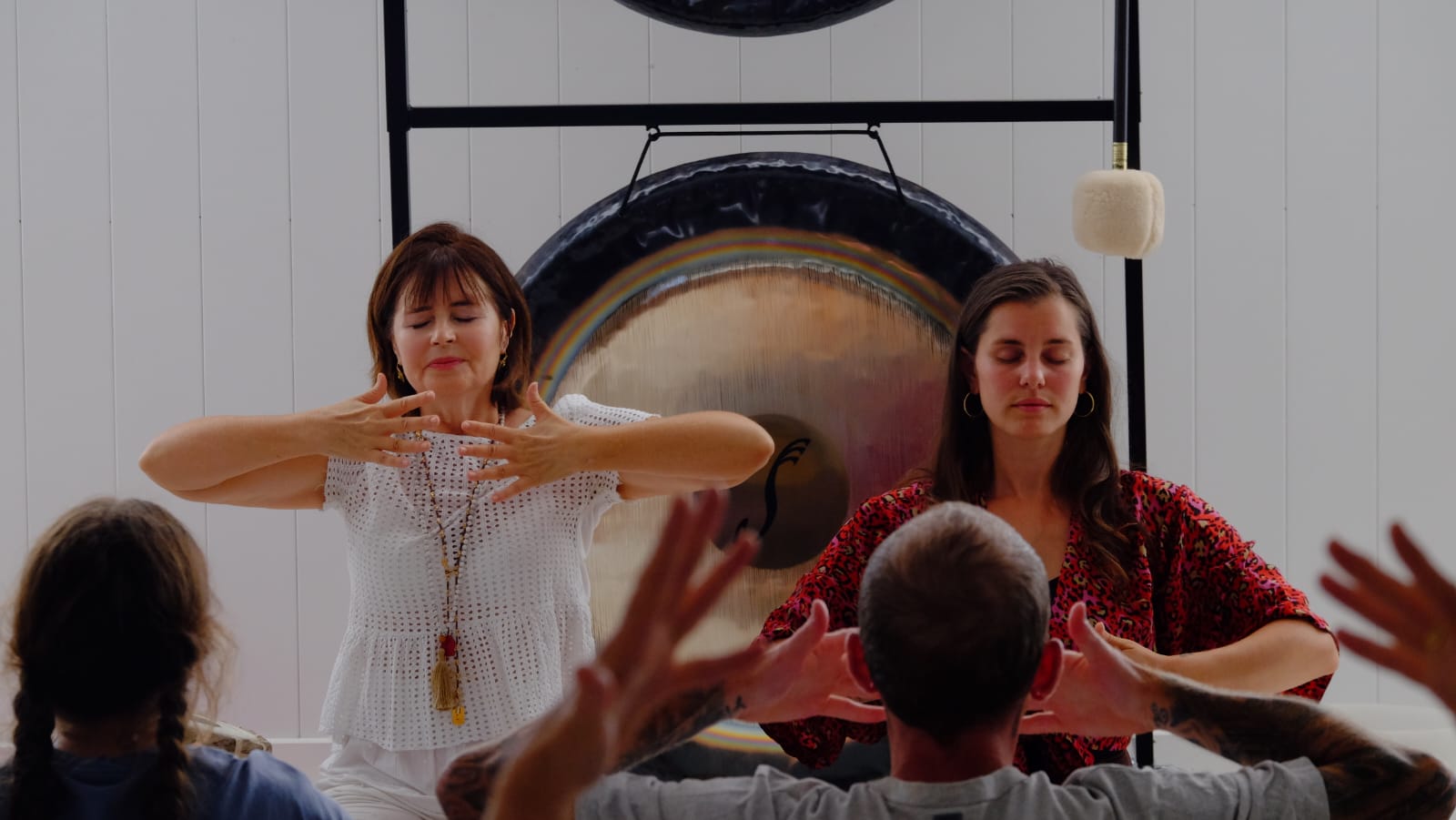
Space Holding 101: How to Truly Witness Another
There is a kind of presence that changes people.
Not through fixing.
Not through advice.
Not through telling the right story at the right time.
But through being there — truly there.
Steady. Soft. Rooted. Listening.
Holding space with a heart wide enough to let someone else be.
This is sacred work.
Whether you are a coach, a doula, a friend, or a mother —
learning how to witness without rescuing is one of the deepest gifts you can offer.
What It Means to Hold Space
To hold space is to create a container.
A field of safety, reverence, and non-judgment.
It's not about taking someone's pain away.
It's about saying, with your presence:
You don't have to go through this alone.
When you hold space, you become a mirror — not a spotlight.
You let their truth take centre stage.
You let silence speak when it needs to.
You let the person in front of you unfold without interruption or interpretation.
The Essentials of True Presence
1. Come Empty
Don't bring an agenda.
Don't try to be impressive.
Don't think about what to say next.
Be there.
Fully. Gently. With your whole body.
Your presence is more healing than any perfect words.
2. Listen Beyond the Words
Listen with your ears, yes — but also with your body, your breath, your intuition.
Notice the pauses. The shifts. The energy behind what's being said.
Ask yourself: What's not being said? What's being felt here?
3. Validate Without Hijacking
It's tempting to say, "I know exactly how you feel."
But true space holding means you don't make it about you.
Try:
"That makes so much sense."
"I hear how hard that was."
"Thank you for sharing that with me."
Affirm their experience without inserting your own.
4. Know the Nervous System is in the Room
Trauma doesn't always speak in words — it lives in the body.
If someone is dysregulated (shut down, reactive, numb, hyper-alert),
meet them with your regulation.
Speak slowly.
Breathe deeply.
Stay anchored.
Let your nervous system be a steady rhythm they can attune to.
Trauma-Informed Foundations
To be trauma-informed is to honour someone's pace.
To prioritise choice and consent.
To recognise that you're not here to lead their healing — you're here to honour it.
It means:
Asking before touching or offering.
Respecting silence as sacred.
Never pushing for vulnerability.
Letting people take breaks, change their minds, or not know what they need yet.
Safety comes before transformation. Always.
A Ritual for Holding Space
Before you sit with someone, try this:
Close your eyes.
Breathe into your belly.
Place your hands on your heart and say silently:
"May I be a soft place to land. May I be clear, grounded, and kind."
Then open your eyes.
Let presence do the rest.
You Don't Have to Be the Healer
Sometimes the most healing thing you can do is not try to heal.
To trust the other person's process.
To honour their timing.
To be a steady, sacred witness as they walk themselves home.
This is space holding.
This is love in action.
This is the medicine of presence.
And if you're drawn to this work —
thank you.
We need you.
If you're ready to deepen your practice of holding space, I invite you to explore my offerings. Whether you're looking to experience being held in sacred space or learn how to create safer, more transformative spaces for others, I'm here to support your journey.